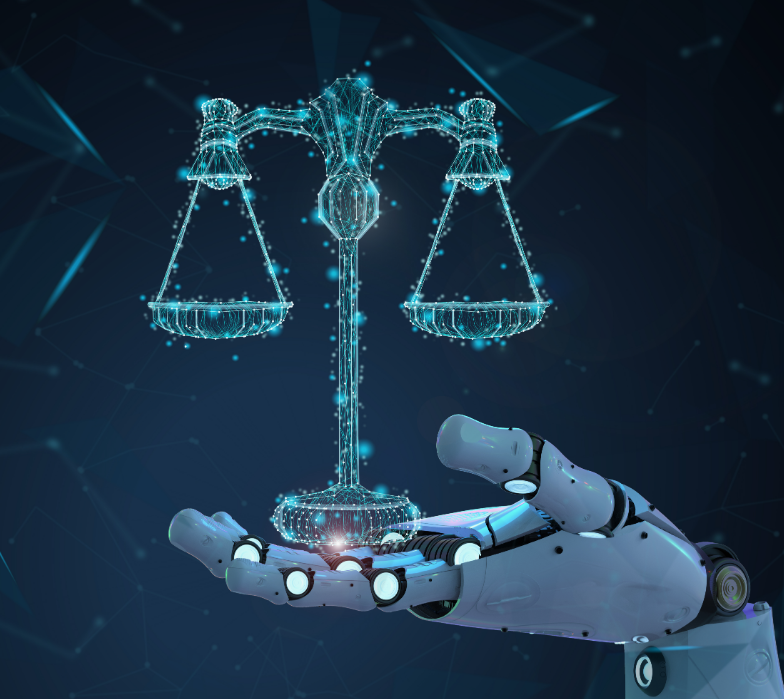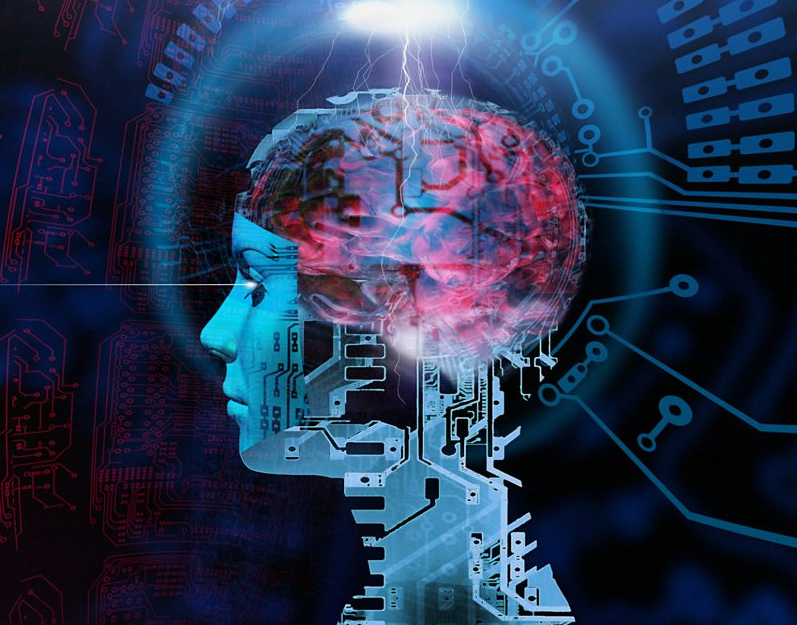The Law of Artificial Intelligence sets regulations for safe and trustworthy AI systems. It ensures fundamental rights are respected and encourages investment and innovation in Europe. As AI technology continues to advance rapidly, legal frameworks are crucial in governing its use. Various jurisdictions are implementing laws to address the ethical, privacy, and security implications of AI. The European Union’s Artificial Intelligence Act, for example, aims to create a single market for AI while upholding citizen rights.
In the United States, states like California and Colorado have passed laws to regulate AI technologies. Understanding the legal landscape of AI is essential for businesses and individuals navigating the evolving field of artificial intelligence.
Law of Artificial Intelligence

History of AI In Law- Law of Artificial Intelligence
The history of AI in law dates back to the emergence of AI technology in legal services, with a focus on regulation, ethics, and terminology. The recent AI Act is the first comprehensive law regulating the use of artificial intelligence in the EU, aiming to ensure the development and uptake of safe and trustworthy AI systems while respecting fundamental rights and stimulating investment and innovation.
Current Applications of AI In Law- Law of Artificial Intelligence
Artificial intelligence is revolutionizing various industries, and the legal sector is no exception. This blog post explores the current applications of AI in law, focusing on how it is transforming legal research, due diligence, contract analysis, and management.
Legal Research And Due Diligence- Law of Artificial Intelligence
AI technology streamlines legal research by quickly analyzing vast amounts of data, statutes, and case law. It enhances due diligence processes by identifying potential risks and inconsistencies in legal documents.
Contract Analysis And Management
AI tools are increasingly used to review and analyze contracts, extracting key clauses, dates, and obligations efficiently. They help in contract management by automating tasks like contract creation, tracking, and renewal.
Challenges and Concerns
Artificial intelligence (AI) has become a prominent and rapidly evolving field, with applications in various industries. As AI technology continues to advance, there are growing concerns and challenges that need to be addressed. In this blog post, we will explore some of the key challenges and concerns surrounding the law of artificial intelligence.
Data Privacy And Security
One of the major concerns with the use of AI is the protection of data privacy and security. AI systems often rely on large amounts of data to operate effectively, and this data can include sensitive information about individuals. Therefore, it is crucial to ensure that appropriate measures are in place to safeguard this data from unauthorized access or misuse. Some of the key considerations in this regard include:
- The implementation of robust data protection and encryption measures
- Compliance with relevant data privacy regulations, such as the General Data Protection Regulation (GDPR)
- Transparency in data collection and usage practices
- Establishing clear consent mechanisms for data collection and processing
- Regular auditing and monitoring of AI systems to identify and address any potential security vulnerabilities
Bias And Discrimination In AI Algorithms
Another important challenge in the field of AI is the potential for bias and discrimination in AI algorithms. AI systems are designed to make decisions based on patterns and data, but if the underlying data is biased or discriminatory, it can lead to unfair outcomes. This can have significant social and ethical implications. To address this concern, it is crucial to:
- Ensure that training data used for AI algorithms is diverse and representative of the population
- Regularly evaluate and monitor AI systems for bias and discrimination
- Implement mechanisms to mitigate and correct biases in AI algorithms
- Encourage transparency and accountability in the development and deployment of AI systems
- Promote diversity and inclusion in AI research and development teams
Regulation and Ethics
The Law of Artificial Intelligence is a complex and evolving field that requires careful consideration of regulation and ethics. As AI technology continues to advance, it is important to establish legal frameworks and ethical guidelines to ensure its responsible development and use. In this blog post, we will explore the legal frameworks for AI and the ethical considerations in AI development.

Legal Frameworks For AI
Legal frameworks for AI are crucial to address the unique challenges posed by this technology. These frameworks provide guidelines for the development, deployment, and use of AI systems. Some key aspects of legal frameworks for AI include:
- Licensing and certification requirements for AI developers and operators
- Data protection and privacy laws to safeguard personal information
- Liability and accountability for AI systems and their actions
- Intellectual property rights and patent laws about AI inventions
- Regulation of AI in specific industries such as healthcare, finance, and transportation
These legal frameworks aim to strike a balance between promoting innovation and ensuring the responsible and ethical use of AI.
Ethical Considerations In AI Development
Ethical considerations play a crucial role in the development of AI systems to ensure that they are aligned with societal values and do not cause harm. Some key ethical considerations in AI development include:
- Fairness and non-discrimination: AI systems should be designed and trained to avoid biased outcomes and discrimination based on factors such as race, gender, or age.
- Transparency and explainability: AI systems should be transparent and provide clear explanations for their decisions and actions, enabling users to understand and trust their behavior.
- Accountability and responsibility: Developers and operators of AI systems should be accountable for the impact of their technology and take responsibility for any negative consequences.
- Data privacy and security: AI systems should adhere to strict data privacy and security standards to protect sensitive information and ensure user trust.
- Human oversight and control: AI systems should be designed to include human oversight and allow for human intervention when necessary to avoid undue reliance or potential harm.
By considering these ethical considerations, we can ensure that AI technology is developed and used responsibly and beneficially.
Future Trends In AI and Law
The Law of Artificial Intelligence is a rapidly evolving field that intertwines technology with legal frameworks. In this blog post, we delve into the Future Trends in AI and Law, exploring how artificial intelligence is shaping the legal landscape.
Predictive Analytics In Legal Decision-Making
Predictive analytics in legal decision-making involves leveraging AI algorithms to forecast case outcomes based on historical data. By analyzing patterns and trends, AI systems can assist legal professionals in making more informed decisions. These tools not only streamline the decision-making process but also enhance efficiency and accuracy in legal proceedings.
Impact of AI on the Legal Job Market
The impact of AI on the legal job market is a topic of significant discussion. While AI technologies can automate repetitive tasks and increase productivity, they also raise concerns about job displacement. Legal professionals must adapt to the changing landscape by acquiring skills that complement AI capabilities, such as data analysis and technology proficiency. Embracing AI can lead to new opportunities and innovative roles within the legal sector.
Case Studies Law of Artificial Intelligence
Law of Artificial Intelligence and Case Studies Law of Artificial Intelligence…
Use of AI in Legal Practice Examples
AI is increasingly being used in legal practice to streamline processes and improve efficiency. One example of this is the use of AI-powered software to review and analyze contracts, which can significantly reduce the time and resources required for this task. Additionally, AI is being utilized for legal research, where it can quickly analyze vast amounts of data to identify relevant case law and precedents. Furthermore, in the field of e-discovery, AI algorithms are employed to sift through large volumes of electronic documents to identify relevant information for legal cases.

Legal Challenges Faced In AI Implementation
Despite the numerous benefits of AI in legal practice, there are several legal challenges that organizations face when implementing AI systems. One major challenge is the issue of bias in AI algorithms, which can lead to unfair outcomes and discrimination. Organizations also need to navigate the complexities of data privacy and security laws when using AI for legal purposes. Additionally, there are concerns about the ethical implications of AI in legal decision-making and the potential impact on the role of human lawyers in the legal profession.
Conclusion
As artificial intelligence continues to evolve and impact various industries, it is crucial to have a clear understanding of the laws and regulations surrounding it. The emergence of the EU’s AI Act and the passing of AI laws in certain US states are positive steps towards fostering the development of safe and trustworthy AI systems. However, there are still many controversial issues and ethical concerns that need to be addressed. It is essential to continue exploring and discussing the use of AI within legal services and society as a whole to ensure that it is used responsibly and ethically.

